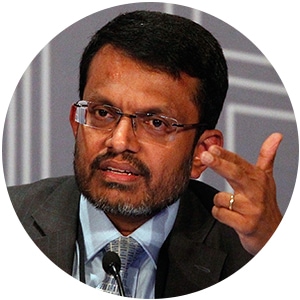The Monetary Authority of Singapore is establishing a new team to bolster monitoring of financial institutions and enforcement of rules againstmoney laundering.

Just days after shutting down the operations of Swiss bank BSI as a result of money-laundering charges, Singapore’s central bank announced it has stepped up enforcement with a dedicated anti-money-laundering (AML) unit.
On July 25, Monetary Authority of Singapore (MAS) managing director Ravi Menon said Singapore regulators will step up checks on financial institutions and take tougher actions when firms breach anti-money-laundering rules.
“Singapore’s reputation as a clean financial center has taken a hit after three banks here were found to have lapses in anti-money-laundering controls in relation to financial transactions involving Malaysia’s state fund 1MDB,” Menon said.
The new department will monitor money-laundering policy and illicit financing risks. Its staff will visit financial institutions to provide on-site supervision. “These functions used to be carried out by different departments,” says Menon. “The new structure will enhance supervisory focus.”
BSI Bank’s Singapore unit was responsible for 41 breaches of AML rules, for which it was fined S$13.3 million (US$9.9 million). Six former staff members, including the CEO, have been referred to Singapore’s public prosecutor. The decision to shut down the bank took into account “the repetitive lapses as well as 2015 inspection findings which revealed widespread control failures…unacceptable risk culture, with blatant disregard for compliance…and numerous acts of gross misconduct,” says MAS.
Aggressive probity may shore up the city-state’s role as a financial center. “Singapore’s aspiration to demonstrate it is the trusted place to do banking business in SEA is helped by a political setup which enables it to get things done, and also by Hong Kong’s eclipse,” says a US-based expert on money-laundering and bank security who asked not to be named because of the sensitive nature of his work. “China’s political concerns are increasingly seen as overriding issues of privacy or probity, to the detriment of its international reputation.”
Consolidation of compliance monitoring should make the team more effective, too. “Word on the street is that the BSI debacle was missed because intelligence from multiple sources was not collated, or at least, not until too late,” says the money-laundering expert. “This is the right time to do this.”



